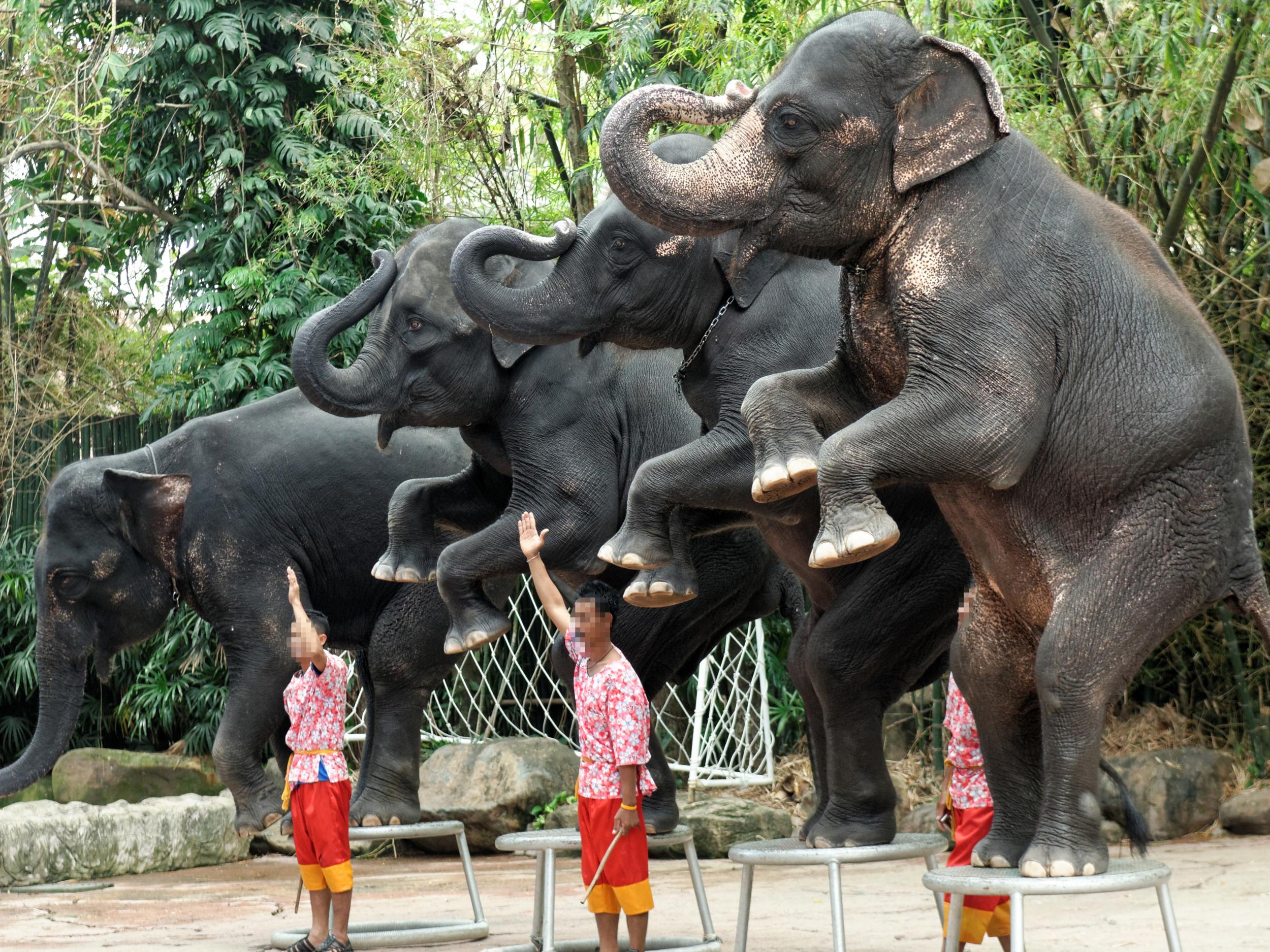Travel associations ‘turning a blind eye’ to cruel wildlife attractions like elephant rides and tiger selfies, say campaigners
'Travel associations must step up, take action and commit to protecting wildlife'

Cruel attractions like elephant rides, tiger selfies and dolphin aquariums are not being tackled by the world’s leading travel associations, according to wildlife campaigners.
New research has revealed the majority of trade associations whose members include top travel agencies and tour guides are doing nothing to prevent harmful practices.
Even among those taking action, World Animal Protection (WAP) said their recommendations were often vague and lacked enforcement mechanisms.
The Independent has previously revealed major travel firms including TUI and TripAdvisor selling holidays in which animals were being hurt and forced to perform tricks, and the campaign group said associations were “turning a blind eye” to these attractions.
In the University of Surrey study supporting these claims, 62 travel trade associations from Australia to Zimbabwe were assessed.
Only six were communicating anything to their members about animal welfare, and of those only two associations and one tourism standard setting body had welfare guidelines as part of their sustainability programmes.
One of those was the Association of British Travel Agents (ABTA), a group with a memberships of 1,200 companies including Thomas Cooke and STA Travel.
Despite its relatively prominent position, WAP said industry-leader ABTA must do more to eliminate cruel practices – introducing firm guidelines that class activities like elephant riding as unacceptable and ensuring these measures are enforced.
According to another analysis, more than 550,000 captive wild animals including elephants, sloths, tigers and dolphins are being kept in poor conditions around the world for tourists’ entertainment.
Hundreds of travel companies and millions of people have backed campaigns to eradicate practices considered cruel such as elephant shows, but WAP has warned that at a time when tourism is growing, more action is needed.
Of the associations assessed, the researchers found 16 were actually using promotional pictures interacting with tourists in their promotional materials.
“This is a systematic problem that needs to be addressed to ensure wild animals are not used for cruel tourist entertainment,” said Nick Stewart, head of the Wildlife Not Entertainers programme at World Animal Protection.
“Travel associations must step up, take action and commit to protecting wildlife.
“Following these research findings, we hope that travel associations will review their animal welfare guidelines. These associations must listen to their members and use this as an opportunity to lead the travel industry to fully commit to protecting wildlife.”
The report documenting these findings was launched at the World Travel Market trade show in London on Tuesday.

Responding to the findings, director of destinations and sustainability at ABTA Nikki White said that both the association and its members take animal welfare very seriously.
“We welcome WAP’s recognition that ABTA is leading the way on animal welfare among the global travel industry, however we don’t agree with their assessment of the guidelines,” she said.
Ms White noted that some of their members had purged thousands of tours and changed itineraries to avoid harmful welfare practices.
“ABTA developed the industry’s first ever guidelines for animal welfare in global tourist attractions to provide a framework for our members and businesses to achieve good standards of animal welfare,” she said.
“The guidelines are specific about unacceptable and discouraged practices, as well as minimum requirements.”
Join our commenting forum
Join thought-provoking conversations, follow other Independent readers and see their replies
Comments
Bookmark popover
Removed from bookmarks